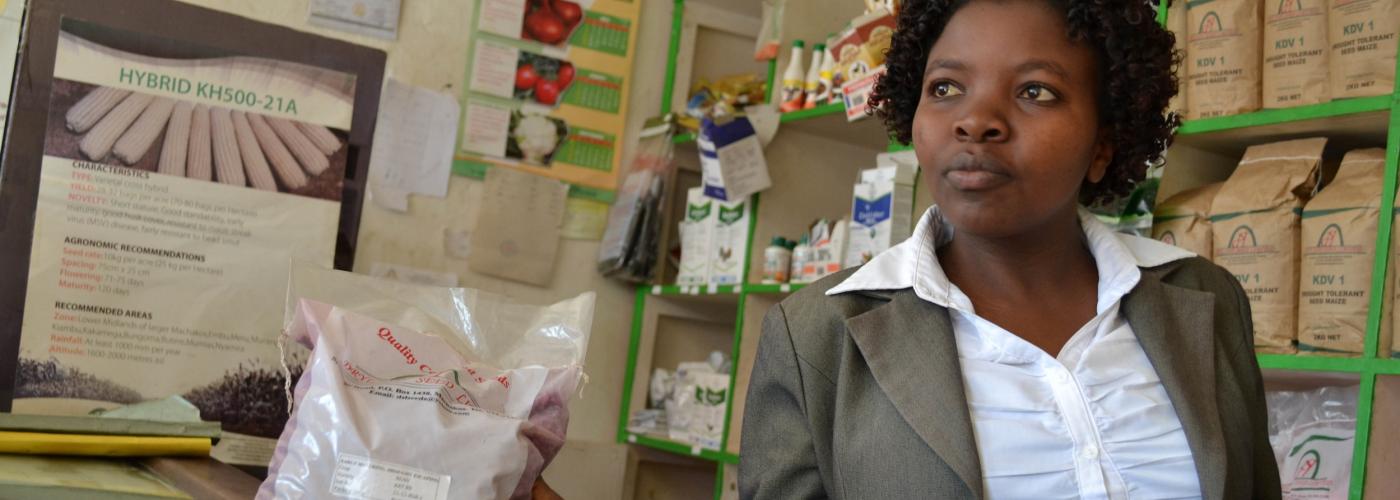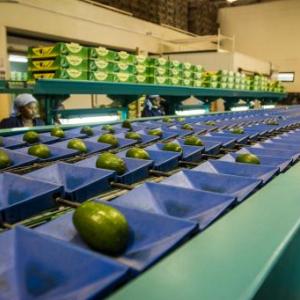A Practical Framework for Assessing Informal Norms in a Market System
Image

The term “enabling environment” often conjures a singular focus on policies, laws, and regulations. These formal rules are important and necessary, but they alone are an incomplete picture of the market system. The Feed the Future Enabling Environment for Food Security (EEFS) project recognizes this, and takes a broader view of the enabling environment which holistically considers the incentives and barriers for market actors operating in complex systems.
To understand why it is so important to expand one’s focus beyond legal/regulatory considerations, consider the formal enabling environment for agricultural seed supply in France versus Malawi. If we take the Quality of Seed Regulation score from the World Bank’s Enabling the Business of Agriculture index, we can see that both France and Malawi score an impressive 7 out of 9. [1] This generally indicates that relevant regulations are appropriately articulated and relatively well-targeted as recommended.
However, in practice, these countries perform very differently in terms of seed supply. Despite a similar regulatory framework in place, it takes more than twice as long to register a new variety in Malawi, and the cost to do so is exponentially higher. What explains the disconnect between rule and practice? For one, there are numerous structural and capacity differences between the two countries. But, in such cases, the root of the issue is often the interplay between the formal rules and the informal norms that permeate through a system.
In other words, examining the formal legal/regulatory environment alone does not tell us why regulations fail to be enforced, whether exclusive and extractive patronage networks persist, or what drives market actors to continue engaging in practices viewed as “irrational” in economic terms. This suggests that examining the enabling environment without considering deep-seated norms and beliefs, and the effect they have on market actor decisions — including their influence on institutional incentives for the effective enforcement of formal rules — would be incomplete.
The importance of informal rules has been appreciated among systems thinkers for some time, but there has been limited practical guidance on how to assess them in a robust, evidence-driven way. Recognizing this challenge, the EEFS project and Vikāra Institute (formerly EcoVentures International) collaborated to develop a practical analytical framework to assess informal rules through a structured methodology.
The Practical Analytical Framework for Inclusive Entrepreneurial Market Systems (IEMS) is designed to identify the underlying incentives for entrepreneurs and the factors that drive broad-based gains from investment. The framework explicitly focuses on entrepreneurship due to its outsized role as a driver of innovation, growth, and employment, and it focuses on inclusivity because this tells us whether gains within a market system are broad-based across society, or exclusive to certain groups.
The IEMS Framework does not seek to replace existing enabling environment diagnostic tools. Existing tools, such as the World Bank’s Doing Business Index and the Enabling the Business of Agriculture Index, are valuable for understanding where law deviates from international best practice. The IEMS Framework seeks to complement these tools by adding a broader examination of the informal aspects of the enabling environment, paying explicit attention to the underlying systemic drivers of behavior to understand why enforcement of formal rules may be weak to nonexistent, and why certain market actor behaviors persist despite a relatively strong legal/regulatory context.
We expect that applying the IEMS Framework will enable evidence-based decision making in the following ways.
First, the IEMS Framework can help identify misalignment between formal rules and underlying informal norms, which may have implications for the design and resource allocation of enabling environment reform efforts.
Second, the IEMS Framework can support an adaptive management approach for implementing partners by providing deeper insights into what is happening, and encouraging implementing partners to course-correct when necessary. Where assumptions about a Theory of Change may not have materialized as expected, applying the IEMS Framework can help explain why this is happening, so that tactics and resources can be shifted accordingly.
Third, the analytical scope of the IEMS Framework is designed to be flexible based on user requirements. It can be applied to a product-specific market system, or to an entire agricultural sector. It can be applied at a national level or a subnational target area, or it can be applied regionally to understand the differences between countries.
Overall, we hope that the IEMS Framework will be a welcome and valuable addition to the diagnostic toolkit available to USAID, implementing partners, host country governments, and other development practitioners globally.
The Feed the Future Enabling Environment for Food Security (EEFS) project is a pre-competed Blanket Purchase Agreement (BPA) for USAID Missions and Operating Units to access evidence-based analysis of how the enabling environment influences agricultural market system performance, food security, and nutritional outcomes. For further information on how USAID can access EEFS expertise, please contact the Chief of Party, Adam Keatts, at akeatts@fintrac.com.
References
[1] World Bank, Enabling the Business of Agriculture, https://eba.worldbank.org/en/data/exploretopics/seed.


